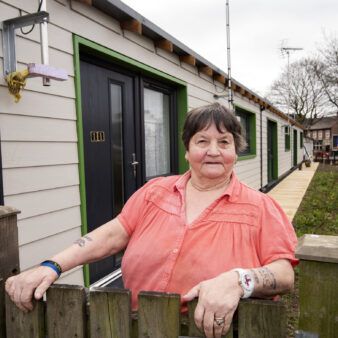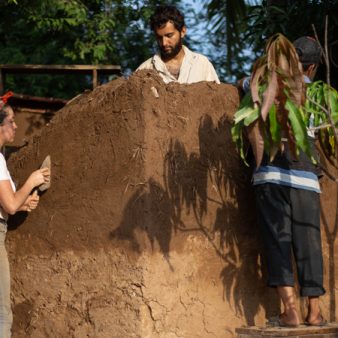Around 1.4 billion people worldwide live in homes with dirt floors. This includes three in every four Rwandans and around two in three Ugandans, who eat, sleep, cook and store food on dirt floors because they cannot afford alternative materials like concrete.
Dirt floors pose a serious health risk because they harbour parasites and bacteria, such as soil-transmitted helminths (STH), which enter floors in faeces on the shoes or feet of people; in spilled water; or directly from children and livestock in the home. Children are particularly at risk from STH infections, which have been linked to diarrhoea, poor cognitive development, immunodeficiency, malnutrition, stunting, anaemia and wasting.
After learning about the dangers of dirt floors during a trip to Rwanda, a group of students from Stanford University in California set about designing an affordable alternative that could dramatically improve the health and life-chances of some of the country’s poorest people.
They founded EarthEnable, a US-based non-governmental organisation (NGO) which works to eliminate dirt floors worldwide by replacing them with low-cost earthen floors. In 2014, the organisation established EarthEnable Rwanda, a social enterprise which operates in five districts in Rwanda and one in neighbouring Uganda.
EarthEnable is the only provider of earthen floors in both countries, where 11,000 people are already experiencing the health, financial and social benefits of this new floor in their home.
How the project works
Making floors out of compressed earth is a traditional building technique that has existed for centuries but is not commonly used in Africa. After EarthEnable Rwanda was founded, it worked with local masons to test different construction methods and materials in order to create the most effective product at the lowest cost. This process included the invention of a new flaxseed oil varnish to seal the floor that is cheaper to produce, more sustainable and healthier than traditional linseed oil.
The floors are marketed door-to-door by sales representatives who educate customers about their health benefits and affordability. Installation is carried out by trained masons, who receive a customer rating for each floor they build, helping to ensure a high standard of work is maintained.
To make the floor, the masons first compact a layer of rocky soil called laterite. A layer of screed (fine sand and water) is spread over this before the floor is sealed with varnish. When the varnish is dry, it forms a durable, waterproof surface that allows people to wash the floor to remove dirt and dust.
EarthEnable estimates its floors will last for 10 to 15 years with re-varnishing every few years. Customers can do this themselves by purchasing a bottle of varnish or EarthEnable will do it for a small fee. Free re-varnishing is provided during an initial six-month warranty period.
It takes around two weeks to install an earthen floor throughout an entire house, including drying time. Installation can be phased, allowing families to live in part of the home while the floor is installed in another part.
The average cost of an EarthEnable floor is around USD$90 (approximately USD$3 per square metre). Concrete floors can cost up to five times this amount. The price of an earthen floor is accessible to households with an income of USD$70 per month, which accounts for more than half of Rwanda’s population. Customers can pay by instalments to ensure maximum affordability. Roughly one in 10 customers receive free installation, generally in relation to product development or because they have been selected by village leaders.
Initial seed funding for the project came from Stanford University and a grant from Echoing Green, a global organisation that supports social entrepreneurs. EarthEnable Rwanda uses a social enterprise approach, donating its profits back to the umbrella organisation to fund expansion into new countries. The annual budget for 2017 was USD$350,000, which was covered through a combination of grants and income from the sale of earthen floors.
Impact
Improved health is the biggest benefit of earthen flooring, particularly for children and young people under 18 years of age, who make up almost half of Rwanda’s population. As most customers don’t have shoes, earthen floors provide important protection from ‘jiggers’ – parasites that burrow painfully into children’s feet. Most families cook on the floor, so removing dirt also improves food hygiene.
A World Bank study has shown that eliminating dirt floors results in a dramatic reduction in childhood diarrhoea (49 per cent), parasitic infections (79 per cent), and lower incidence of asthma and malnutrition.
EarthEnable has installed earthen floors in more than 2,300 homes in Rwanda and around 100 in Uganda. Its own research shows that just one month after installation, almost three in every four customers report an improvement in household health.
Hygienic floors also help to improve socio-economic status as less money is spent on medicine and fewer work and school days are missed through illness, increasing household income and educational outcomes for children. Family members – particularly women and children – spend less time cleaning, because earthen floors produce less dust than dry dirt floors, and crops stored on the ground are less likely to be ruined by bugs in the dirt.
The project also provides jobs and training to local communities. Its workforce includes 70 full-time staff across the Rwandan and Ugandan offices, 90 masons and 90 sales representatives. In total, around 500 masons have been trained by EarthEnable, some of whom have gone on to use these skills in other employment.
In addition to being affordable, earthen floors are also sustainable. EarthEnable uses all-natural materials to make its floors, which are 90 per cent less carbon intensive than cement. Materials are sourced as locally as possible to reduce transportation emissions (in many cases, laterite is found in customers’ backyards) and the varnish is produced in the EarthEnable Rwanda office.
The future
EarthEnable is scaling up its operation in Rwanda and Uganda with the aim of inspiring a whole industry around earthen floors. Its business model is designed for others to be able to copy, to encourage a competitive market that builds on its work.
The project has secured strong support from the Minister of Local Government as well as the Rwanda Housing Authority. EarthEnable is currently in talks with the local governments in each of the five areas in which it operates with a view to forming a partnership to build earthen floors for the most vulnerable people in each district.
It is also exploring partnerships with UNHCR (The UN Refugee Agency) to work in refugee camps in Rwanda and developing solutions to improve roofing and walls.
By offering something as simple as hygienic flooring at an affordable price, EarthEnable is improving the lives of some of Rwanda and Uganda’s poorest people. Most importantly, however, EarthEnable’s floors are the foundation to a brighter, healthier future for thousands of children.
View the full project summary here – available in English only
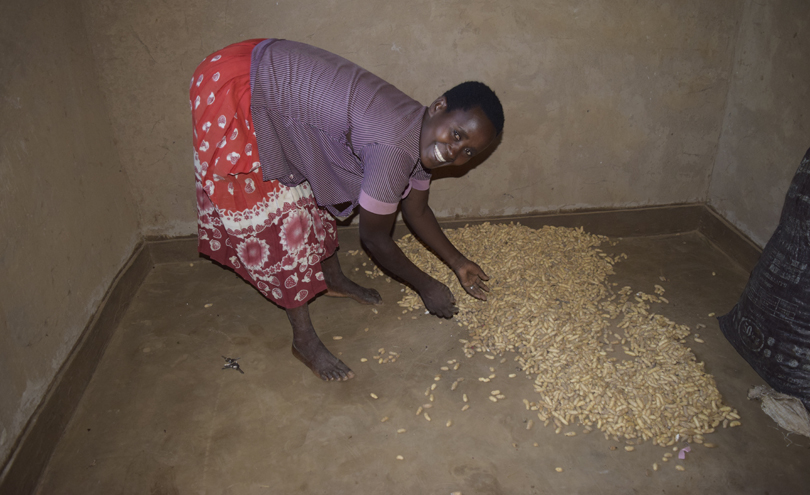
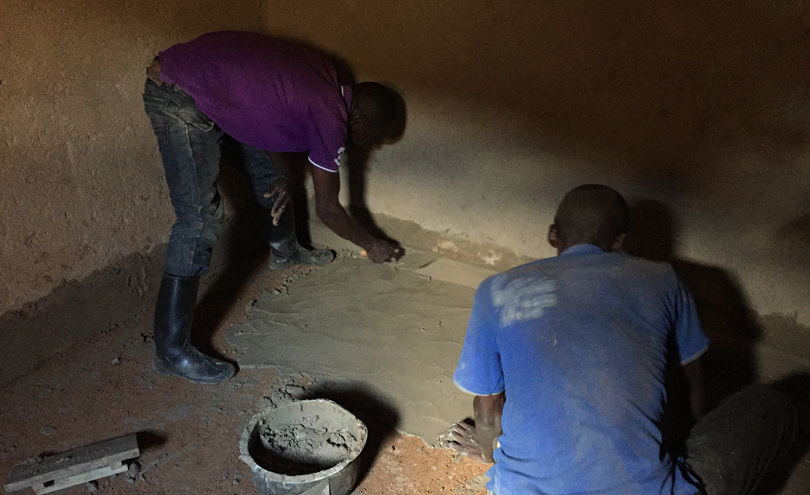

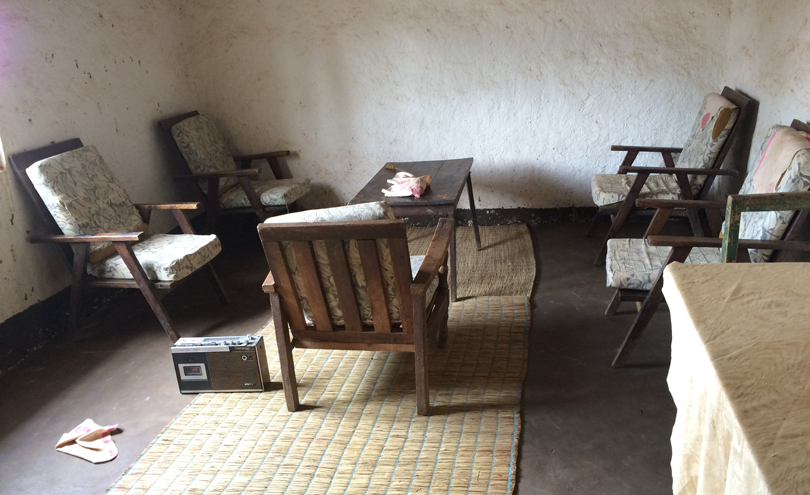
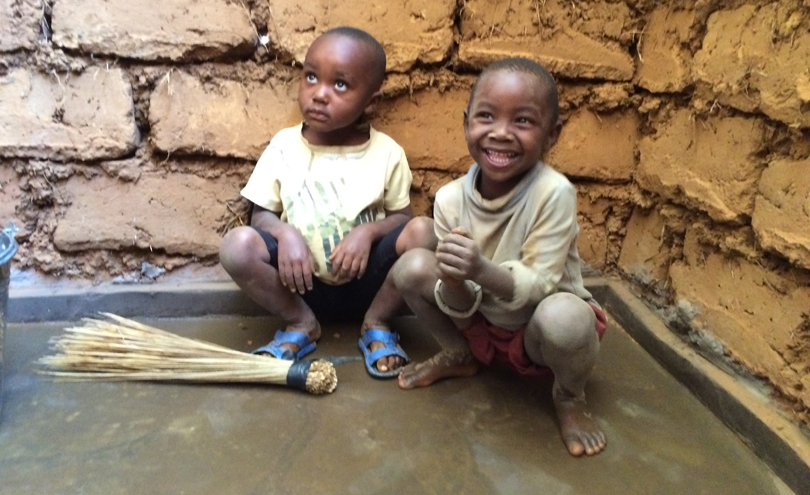
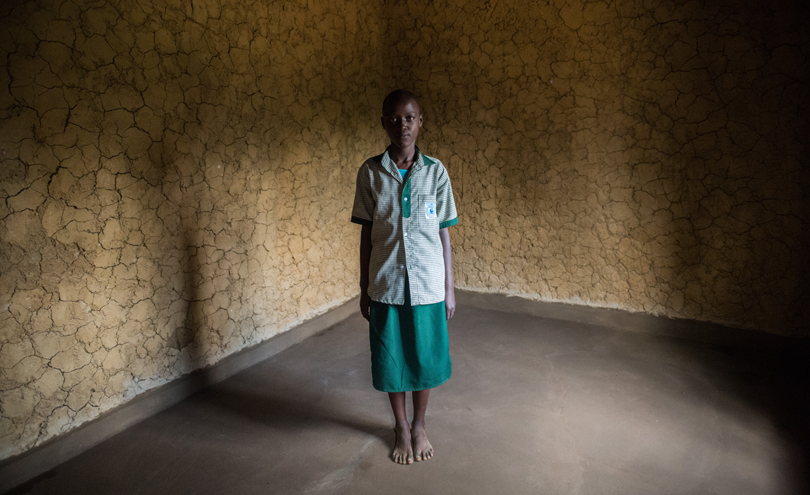
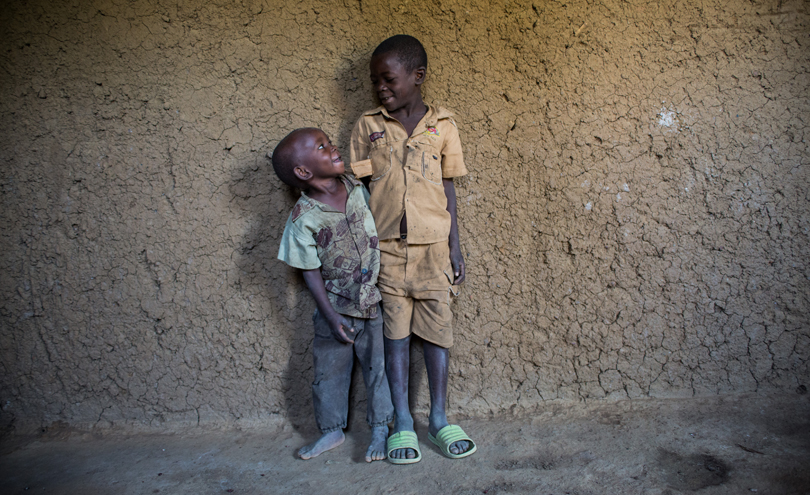
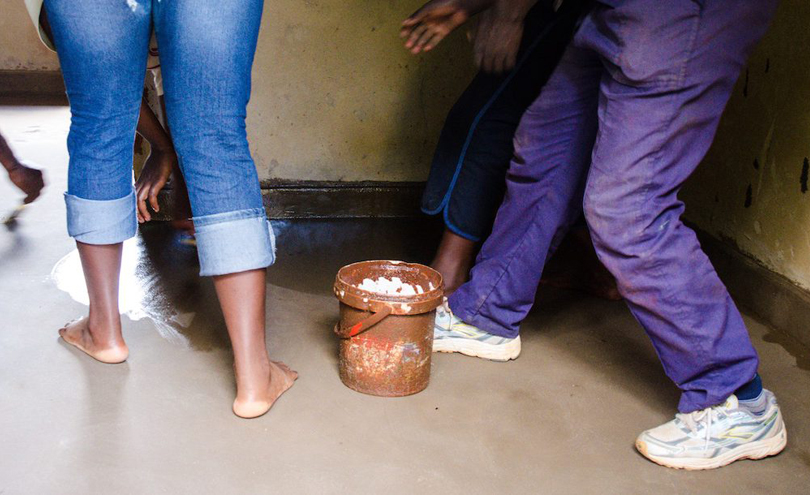
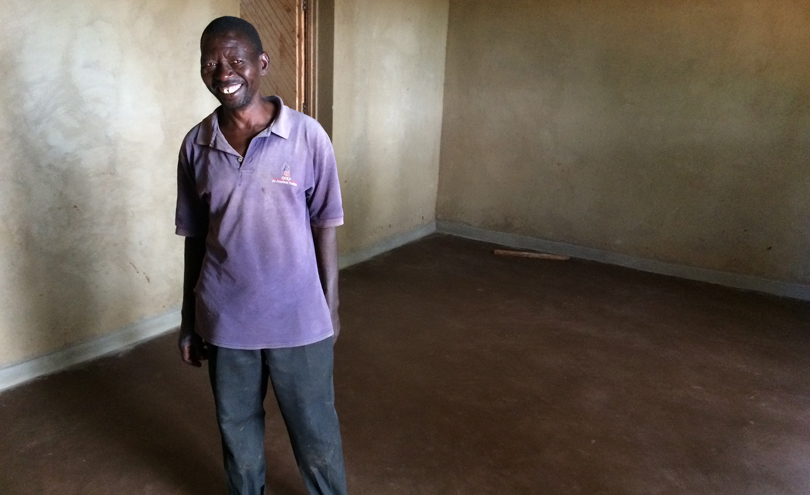
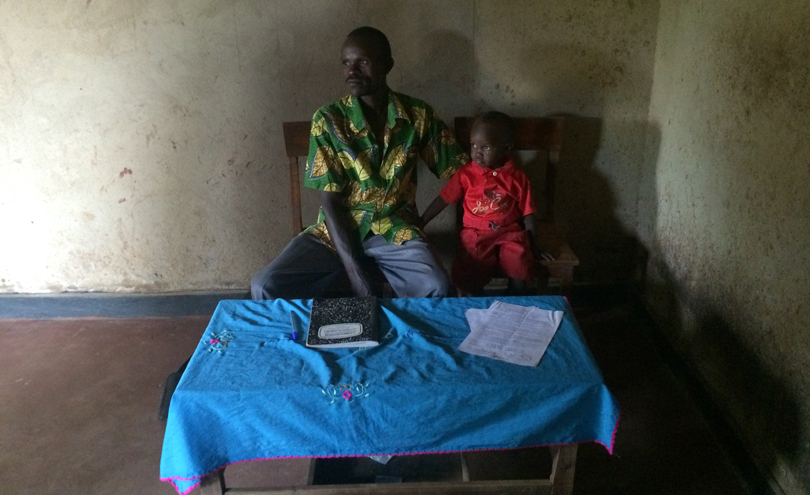
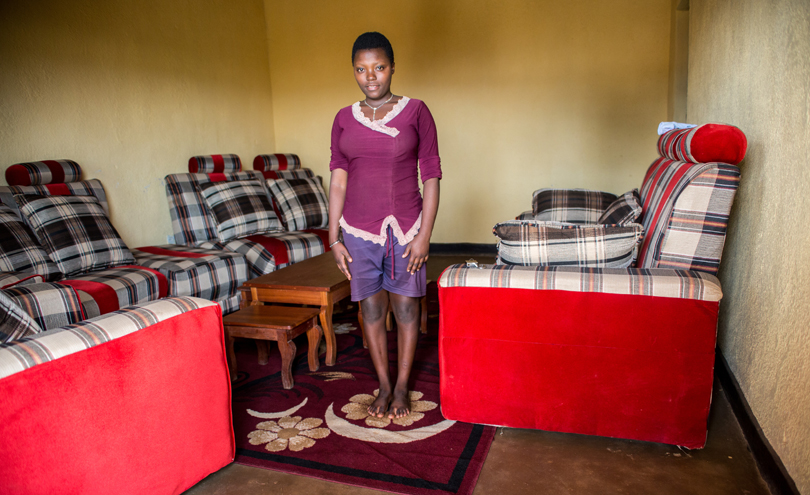


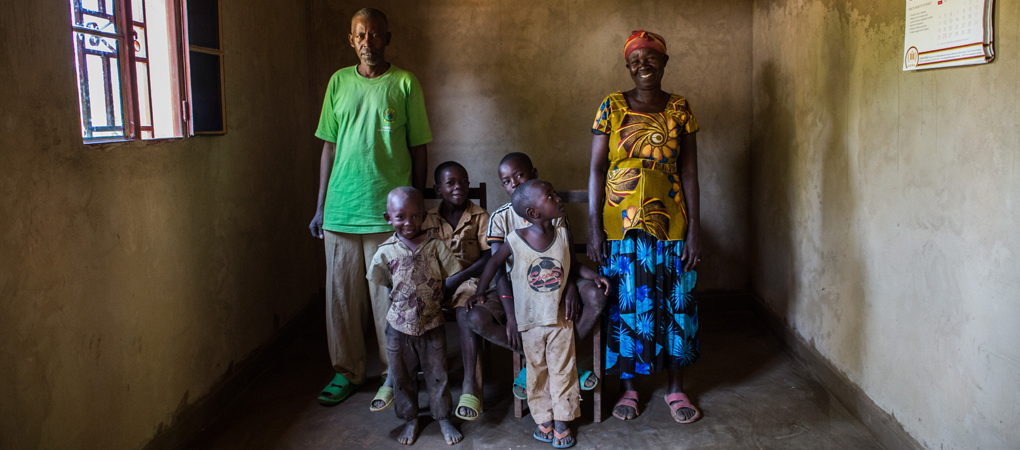
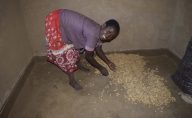
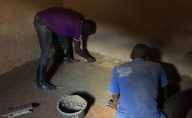
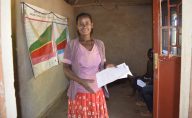

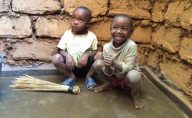
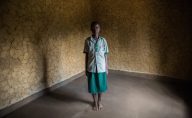

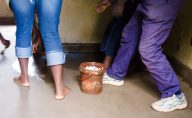
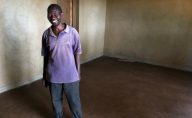
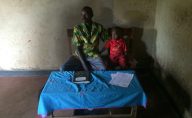
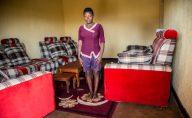
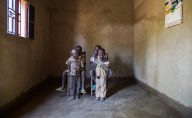
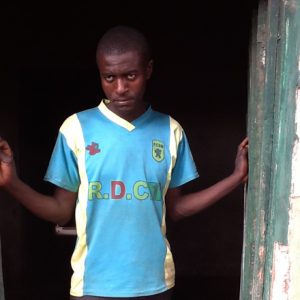 Aphrodise Habimana is a farmer in Eastern Rwanda, Bugesera District.
Aphrodise Habimana is a farmer in Eastern Rwanda, Bugesera District.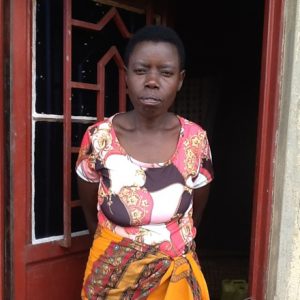 Eugenie Mukaneza is a farmer and mother of three children, who live in Eastern Rwanda.
Eugenie Mukaneza is a farmer and mother of three children, who live in Eastern Rwanda.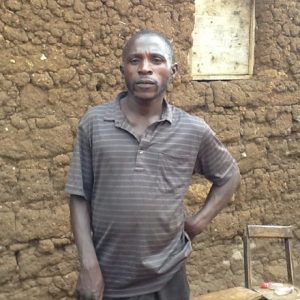 Janvier Magiza lives in Eastern Rwanda with his family. He is a farmer and father of six children.
Janvier Magiza lives in Eastern Rwanda with his family. He is a farmer and father of six children.